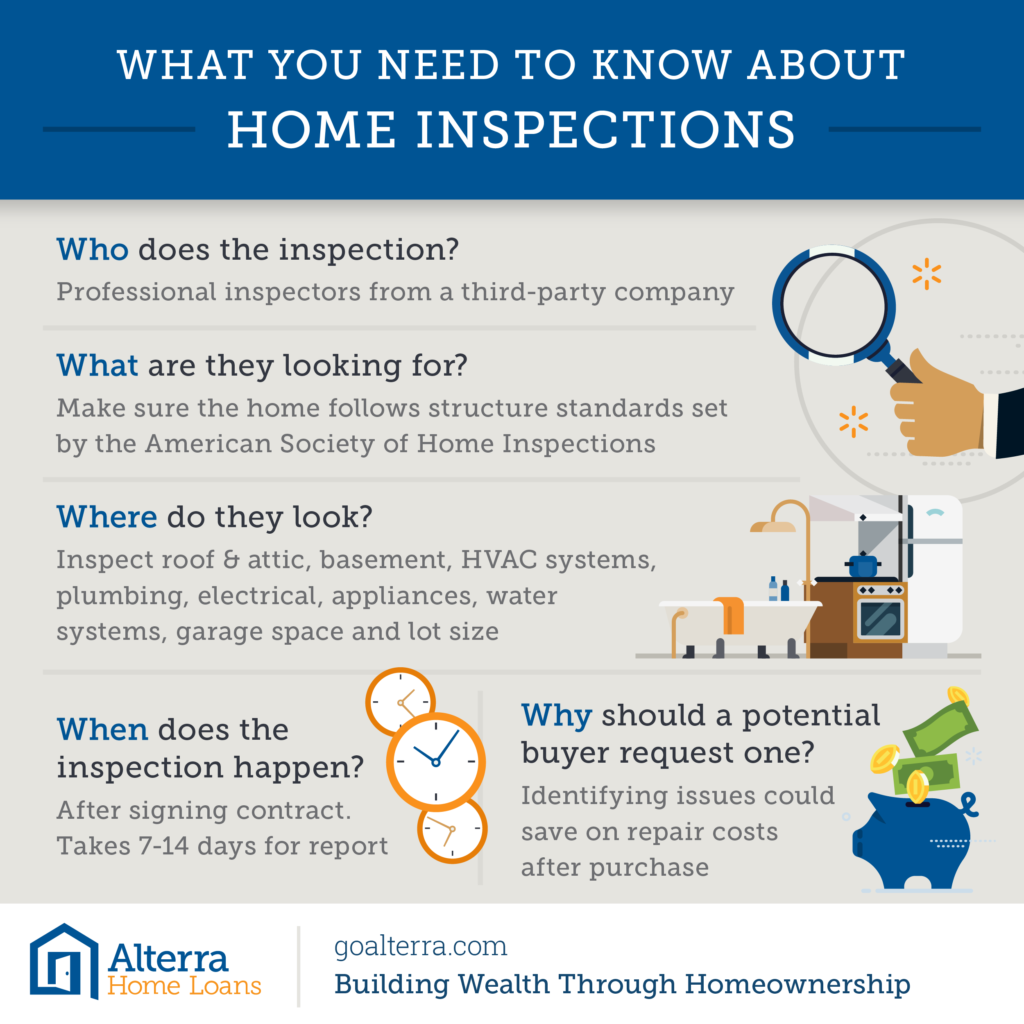 A property inspection is by far one of the most important portions of the home buying process for any potential buyer. Although home inspections are optional, it is suggested that all buyers spend the additional funds to attain a home inspection. Home inspections average between $300-$500 dependent on the area, but can save the homeowner thousands of dollars in the long run. A home inspector can see and notice issues that the average eye may oversee, which alleviates unanticipated home repairs and increased costs. Adding a home inspection to any purchase offer ensures that any issues that may arise are known upfront. This can affect not only the price of the offer, but whether to continue with the contract.
A property inspection is by far one of the most important portions of the home buying process for any potential buyer. Although home inspections are optional, it is suggested that all buyers spend the additional funds to attain a home inspection. Home inspections average between $300-$500 dependent on the area, but can save the homeowner thousands of dollars in the long run. A home inspector can see and notice issues that the average eye may oversee, which alleviates unanticipated home repairs and increased costs. Adding a home inspection to any purchase offer ensures that any issues that may arise are known upfront. This can affect not only the price of the offer, but whether to continue with the contract.
What Does a Home Inspection Cover?
American Society of Home Inspections helps set a standard of practice for home inspections throughout the United States. A typical home inspection includes structure standards, roof & attic inspections, basement inspections, HVAC systems checks, plumbing, electrical appliances and garage space checks. The inspectors are considered 3rd party observers and are there to objectively provide information about any home they are ordered to provide an inspection for. It is suggested that the buyer is present for this inspection to be able to ask the home inspector questions regarding any issues or discrepancies seen by the inspector or buyer.
Inspections can take 7-14 days to occur and be received dependent on the demand in the area. The inspection report will include the following:
- If the problem is a safety issue, minor repair or major defect
- What items need replaced and what needs repaired or serviced
- What items are suitable for use, but should be monitored by the buyer.
Once the buyer receives the home inspection report, the buyer can counter the seller with required repairs and updates to continue with the current offer. If the seller is unwilling to make these changes, the buyer can opt for a price reduction or choose to leave the contract.
Additional Inspections
If there are additional concerns regarding a home or special circumstances, the buyer may wish to request the following inspections in addition to the home inspection:
- Lead Based Paint: If the home was built prior to 1978, this is extremely important to the health of the family.
- Termite & Pest Control: Termites and pests can bring the structure of any home down quickly. It is important for buyers to ask for this inspection and note that homeowner’s insurance does not typically cover termites. VA loans require a termite inspection in most states. The average termite inspection is around $100.
- Foundation Inspection: Averaging $300-$400, this inspection is completed by a structural engineer. This is usually only necessary if a home inspector notes a problem in their inspection.
- Lot Size Survey: These average between $300-$700 and verifies the size of the lot and if there are any easements to the property.
- Chimney Inspection: These are an absolute must in any home with a chimney present. A chimney requires internal inspection for any cracks and unforeseen issues. If this is not completed, there is a risk of major hazards within the home. These average $100-$250.
- Water Inspection: If the home is on a well system, it is suggested that the home receive a water inspection. The water should be tested for chemicals such as lead, cadmium and arsenic. The average water test is $150.
- Radon Test: This should be required if there is a concern from the home inspector that radon gas is present. This is an affordable test at $15-$25.
Additional Tips
- Seller’s Inspection: Some sellers will provide a home inspection completed by their own company. As a buyer, it is always best to bring in a third-party provider for this service in case of any undue persuasion whether intentional or unintentional.
- There Will Be Problems: Even new construction homes have minor issues on their home inspection. Home inspectors are there to nit-pick every inch of the home for issues. This is why it is critical for a buyer to be present during the home inspection to determine what is truly an issue for the buyer and what is trivial.
- Don’t Depend on the Seller: Smart sellers will not agree to fixing everything, but sellers should accommodate fixes that are within reason. Major issues will need to be negotiated through the selling price.



